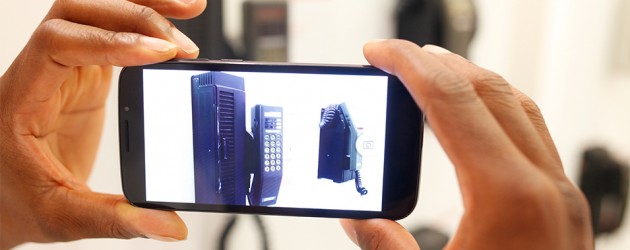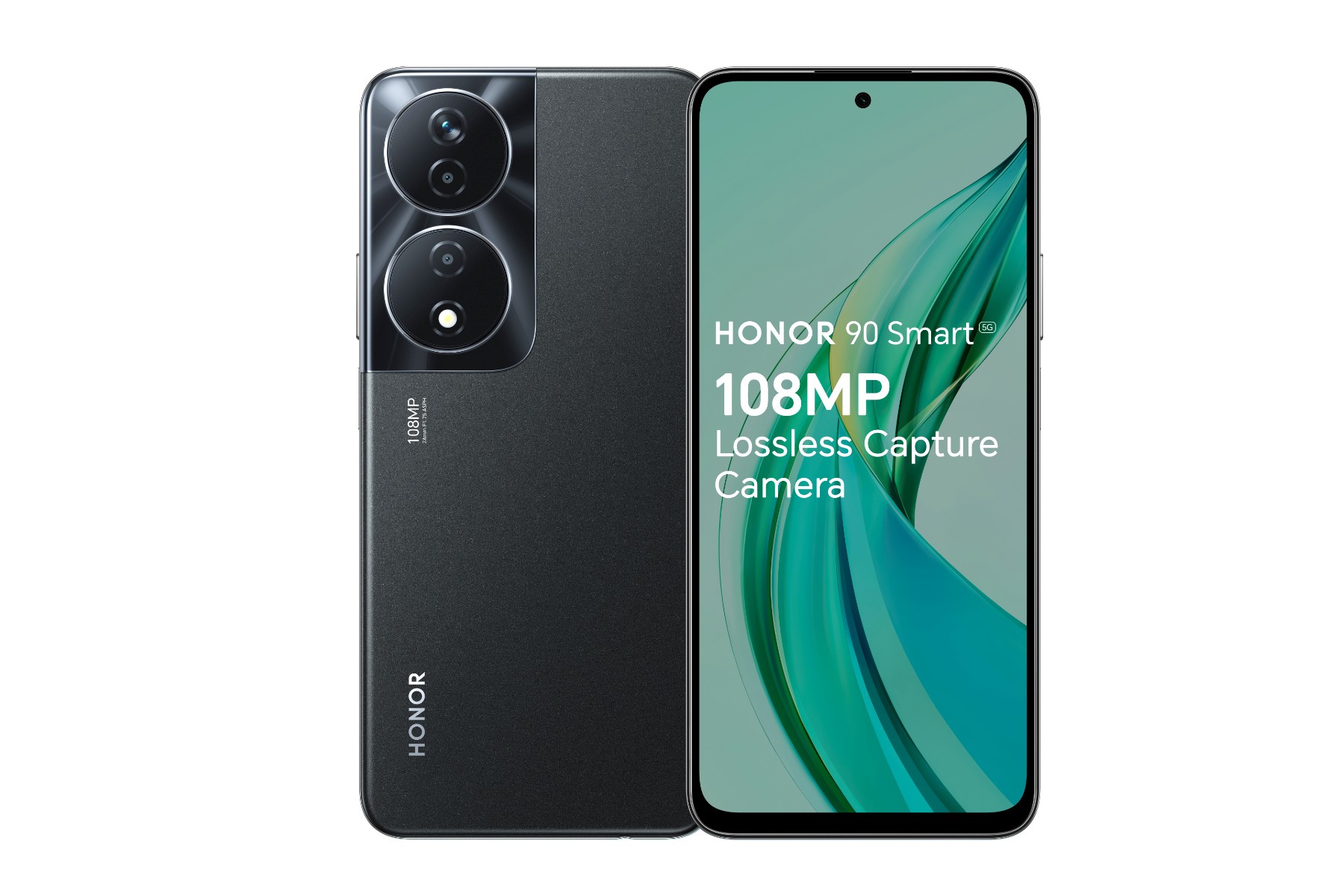
From the office defined by letters, desk phones and ash trays on the desk to one with no walls, email and ubiquitous mobile connectivity: Vodafone UK marks the 30th anniversary of the UK’s first mobile phone call with a look at the impact of mobile and technology on British business.
- The first ever UK mobile phone call was made on 1 January 1985 over Vodafone’s network
- Since the first mobile phone call, mobile technology has become integral to business success with 67 per cent of businesses citing mobile communications as being essential to satisfying the demand for being ‘always-on’ and responsive
- The cost of starting a business today is more than 10 times less than the cost of a mobile phone in 1985 (£312 versus equivalent to over £4000)
As Vodafone celebrates the 30th anniversary of the first ever UK mobile phone call made over its network on 1 January 1985, mobile telecoms and technology have come to be an indispensable part of business globally. From the time a ‘transportable’ mobile phone weighed a whopping 11lbs and only a select few could afford it to the sleek, easily affordable designs available today, mobile has radically changed the way we do business.
Mobile is now an essential business tool and is undeniably a lynchpin of business productivity, efficiency and customer service. It is no longer reserved for high flyers and high earners, but is instead a must-have – enabling businesses of any size to access information anytime, anywhere. In fact, recent Vodafone research found that 67 per cent of businesses say mobile communications is essential to satisfying the demand for being ‘always-on’ and responsive.
“Mobile hasn’t only allowed employees to work from anywhere, it also means they can spread out across various offices and even countries while still effectively collaborating and working towards a common goal,” says David Langhorn, Head of Corporate and Large Enterprise at Vodafone UK. “This has been one of the driving factors behind rapid expansion of large businesses, and the creation of borderless enterprise. Some of our own research recently found that 60 per cent of employees need to work with colleagues in another country and 68 per cent of senior managers say it is easier than ever before to trade internationally. This in turn has positive impact on the economy as businesses can now grow and operate on a scale they never would have thought possible 30 years ago.”
Mobile, mobile, mobile
Since the first mobile phone call, the growth of mobile has been exponential. By 1993, Vodafone had over a million customers and between 1999 and 2000 this leapt from five to ten million customers. Today, there are 7 billion mobile connections globally and over 45 million in the UK alone, according to the GSMA, and the UK ICT market is worth £58 billion annually (UKTI).
The rise of other technology tools such as cloud services, unified communications, secure remote working and 4G have also become a priority investment area for a variety of businesses, helping them to drive productivity, cost savings and differentiate services to their customers.
Creating new opportunities for entrepreneurs
While the tools needed for businesses today may be more extensive than in 1985, technology has dramatically reduced set up costs, and therefore risk, for aspiring entrepreneurs. Investment in real estate, maintenance and other overheads in 1985, for example, meant that business owners often had to make significant capital investment to make it through the set up phase, and they usually took out loans against their homes. Today, the average consumer has access to everything they need to set up a business from anywhere e.g. laptop, smartphone, tablets, social platforms for networking and even a virtual landline on their mobile. As a result, starting a business is much more accessible. PeoplePerHour estimated the average cost of a new business set up was £312 in 2013 – more than 10 times less than the cost of the device used to make the first mobile call on Vodafone’s network.
For Britain in particular, the accessibility of mobile technology has contributed to a surge in young entrepreneurs that have struggled to find work in the post-recession marketplace. The country has risen to the fourth most entrepreneurial economy in the world (according to the Global Entrepreneurship and Development Index, 2014).
Mobile technologies, together with affordable and scalable technologies like cloud services are also helping SMEs to compete with their larger counterparts, be more responsive to customers and be more successful. Research from Vodafone released in June last year found that two-thirds of employees in ‘progressive’ SMEs use smartphones and laptops as well as other mobile technologies. This suggests that these businesses take more action to ensure their employees and customers interact more flexibly and more efficiently.
Jonathan Kini, Head of Small & SME Business adds: “Mobile and remote connectivity is no longer a luxury in business; it’s a necessity for business owners and a widely held expectation amongst employees. Research by the Federation of Small Businesses found 71 per cent of businesses rated mobile phones as crucial or very important to their business.
“In addition to this, a recent Vodafone survey found that 86 per cent of a business’ employees demand flexible working while 60 per cent, in fact, equip the majority of their employees with these options. Furthermore, the ability to be fully mobile and conduct business from anywhere has empowered SMEs and start-ups to take on their larger competitors.”
The future looks ‘cloudy’
Phil Mottram, Vodafone’s Enterprise Director summed up the changes to the market: “Innovation in communications technology over the last thirty years has helped pave the way for digital transformation of businesses. Organisations of all sizes now view communications as a way to improve operational effectiveness, deliver cost saving, improve productivity and increase agility to capitalise on opportunities. It also enables them to differentiate services and stand out from the competition. Recent research[1] supports the point of view that organisations are adopting new technology more quickly, 71 per cent of business leaders say they are confident their business can transition from a state of digital transformation to digital maturity within just five years.
“Trends such as the increased adoption of cloud services mean that the playing field has levelled between large corporates and smaller organisations, with all businesses having access to the latest innovations in technology. As with the last thirty years, the businesses that will be most successful are those that are smart about adopting technology, making it work for their business in order to drive growth. Vodafone has led the way in shaping the way business works in the UK and we look forward to doing the same for the next thirty years.”
[1] Digital Maturity, conducted by Coleman Parkes Research, July 2014
ENDS
Case studies
The office of 1985 – Vodafone’s first business customer, Roger Southam
In 1985 the majority of businesses in the UK had typewriters, fax machines, desk phones and letters to communicate with colleagues, customers and businesses associates.
Roger Southam, one of Vodafone’s first business customers, is a property asset manager and set up his company Chainbow in the late 80s. Roger credits mobile as one of the key innovations that transformed his work processes for the better.
He said: “Before mobile, time away from the office on site visits and viewing properties meant you were completely out of touch. Being away from your desk meant being away from your desk phone, typewriter, and letters. Maintaining productivity was a major bug bear. We spent a lot of time travelling to nearby phone boxes to update colleagues, losing valuable onsite time, and often missed important customer calls from not being in the office.
“Having a mobile meant being able to make a call anytime, anywhere. It made a massive difference. It gave me at least an additional full working day a week of productive time, and extra time meant getting ahead of competition. In 1985, it was rare to see people with phones because it was so expensive, but I had to have one. It transformed my business.
“Having a mobile and later being able to access and update files on our system from anywhere through remote working, have been among the most important developments in the success of our business. Both allow our workers to be completely mobile and productive from wherever they are, and being mobile is the lifeblood of our business.”
The business of today – Diamond Logistics
Diamond Logistics, a courier and logistics company, and a current Vodafone OneNet customer, is using the latest communications technology to deliver on its same-day service promise by combining all of its communications – desktop, landlines and mobile – via one scalable cloud-based system. As one of the fastest growing companies of its kind in the country, the business is also using the platform to support expansion to grow from 15 to 40 sites by the end of 2015.
Kate Lester, CEO of Diamond Logistics said: “Effective communications is the essence of our business and without it; we’d lose same day work which is a key for our line of business. We’re not just an email business and clients do need to call us for quick updates, so it’s essential that we can both guarantee someone will always answer their call, and that our operations team can get in touch with our drivers at all times to be completely on the pulse and offer the best customer service possible.
“We had previously used systems which were antiquated and actually ended up shutting down our business for a few days when it was snowing because we couldn’t get in the office to put the lines on divert. For a 24/7 business like ours, that could mean losing a customer forever. With our new solution, we have virtual landlines on our mobiles which means we can always answer the phone, wherever we are. The hunt group feature also means that customers go straight through to the people who are in control of operations and can help them the quickest. It has made us a much more responsive business, and enabled us to deliver the quality of customer service that helps us stand out against the competition.”
Notes to editors:
For imagery and other assets relating to the 30th Anniversary, please visit this FTP link at:
http://www.ogilvybroadcastpr.com/cgi-bin/FileManager/Login.pl
(username: Vodafone30, password: Vodafone30).

![Falling Dripping Water Drop[Adobe Stock] Falling Dripping Water Drop[Adobe Stock]](https://www.vodafone.co.uk/newscentre/app/uploads/2024/04/Falling-Dripping-Water-DropAdobe-Stock.jpg)


![Dawlish Sunrise [Adobe Stock] resized stock photo of Dawlish in Devon](https://www.vodafone.co.uk/newscentre/app/uploads/2024/04/Dawlish-Sunrise-Adobe-Stock-resized.jpg)